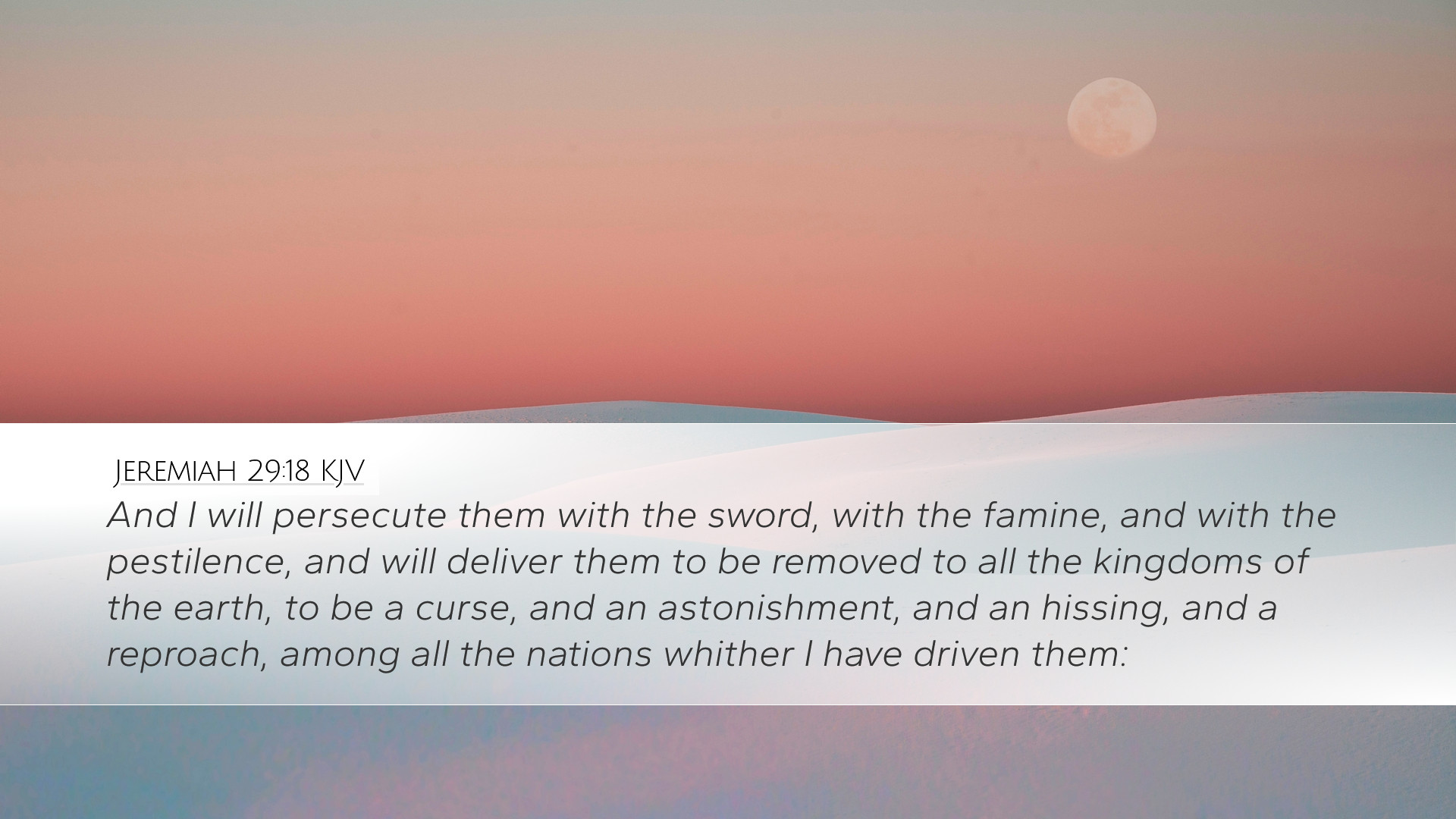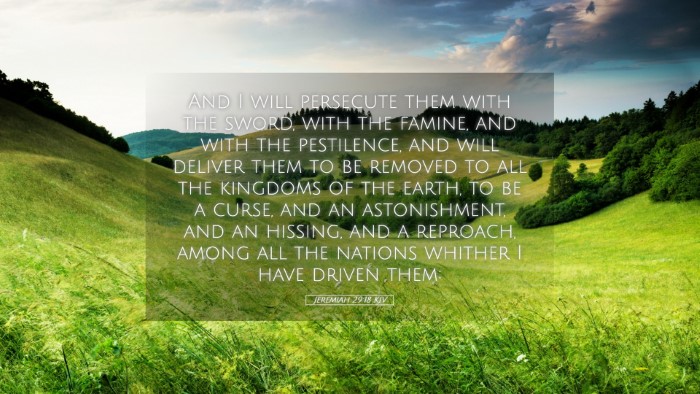Commentary on Jeremiah 29:18
Jeremiah 29:18 states:
"And I will persecute them with the sword, with the famine, and with the pestilence, and will deliver them to be removed to all the kingdoms of the earth; to be a curse, and an astonishment, and a hissing, and a reproach among all the nations whither I have driven them."
Context and Background
The Book of Jeremiah is a profound text within the Old Testament that addresses the impending judgment upon Jerusalem and the subsequent exile of the Israelites. At this time, the Israelites find themselves in Babylonian captivity, and the Prophet Jeremiah communicates God’s impending judgment, as well as the hope of restoration.
Interpretation of Key Themes
-
Divine Judgment:
God’s promise to “persecute them with the sword, with the famine, and with pestilence” (Jeremiah 29:18) epitomizes His righteous judgment against the people who have turned away from Him. This passage signifies not just a physical destruction but emphasizes spiritual decay that aligns with disobedience to God's commands.
-
Exile:
The concept of exile represents the depth of separation from what was considered the covenant community. Matthew Henry observes that God’s people were to be dispersed as a punishment, serving as a reminder of their consequences and collective failure to uphold the covenant with God. This scattering serves both as punishment and as a means to an ultimate restoration—a recurring theme within the prophetic literature.
-
Symbolism of a Curse:
The use of “curse” in Jeremiah 29:18 symbolizes not only judgment but also the repercussions of a broken covenant. Albert Barnes elucidates that such terminology underscores the transformation of the Israelites into a “hissing” and “reproach,” reflecting the social and spiritual disgrace that Israel incurred before the nations surrounding them.
-
Universal Impact:
The phrase “among all the nations whither I have driven them” indicates a universal repercussion of their actions. Adam Clarke underscores that their failure was not contained to a singular locality but would resonate across different nations, reinforcing the communal integrity of Israel’s spiritual journey and its influence, for better or for worse, upon the world.
Theological Significance
From a theological perspective, this verse serves as a stark reminder of the consequences of sin and the importance of remaining faithful to God’s commands. It reflects on the call for repentance—highlighting that while exile is a form of judgment, it also opens a pathway to understanding the depth of God's mercy and willingness to restore His people. Both past and present believers are reminded that divine justice complements divine grace, and turning back to God leads to reconciliation and restoration.
Applications for Contemporary Believers
-
Reflection of Personal Conduct:
Today's believers can draw parallels from this verse by examining their own lives for areas where they have strayed from God’s path. The verse challenges individuals to consider the long-term effects of their choices and the importance of remaining steadfast within their faith community.
-
Understanding Suffering:
The suffering that may come as a consequence can be seen, not merely as a punitive measure, but as a transformative experience—one that can lead to repentance, humility, and greater dependency on God. The understanding of suffering can enhance one’s relationship with God, much like Israel's experience in Babylon, framing trials as opportunities for spiritual growth.
-
Hope amidst Judgment:
Finally, this passage serves as a prelude to eventual restoration, reminding believers that even in the midst of judgment, God’s ultimate plan includes redemption. In the contemporary context, this speaks volumes to the eternal hope that lies within the framework of faith, encouraging believers to look toward divine reconciliation amidst life’s challenges.
Concluding Thoughts
The weight of Jeremiah 29:18 lies in its clarity regarding God’s stance toward sin and the necessity for His people to adhere to His divine standards. As believers grapple with the implications of this verse, the challenge lies not only in understanding “what has been” but in pursuing “what is to come”—a relationship predicated on faithfulness, obedience, and the overarching narrative of redemption.


